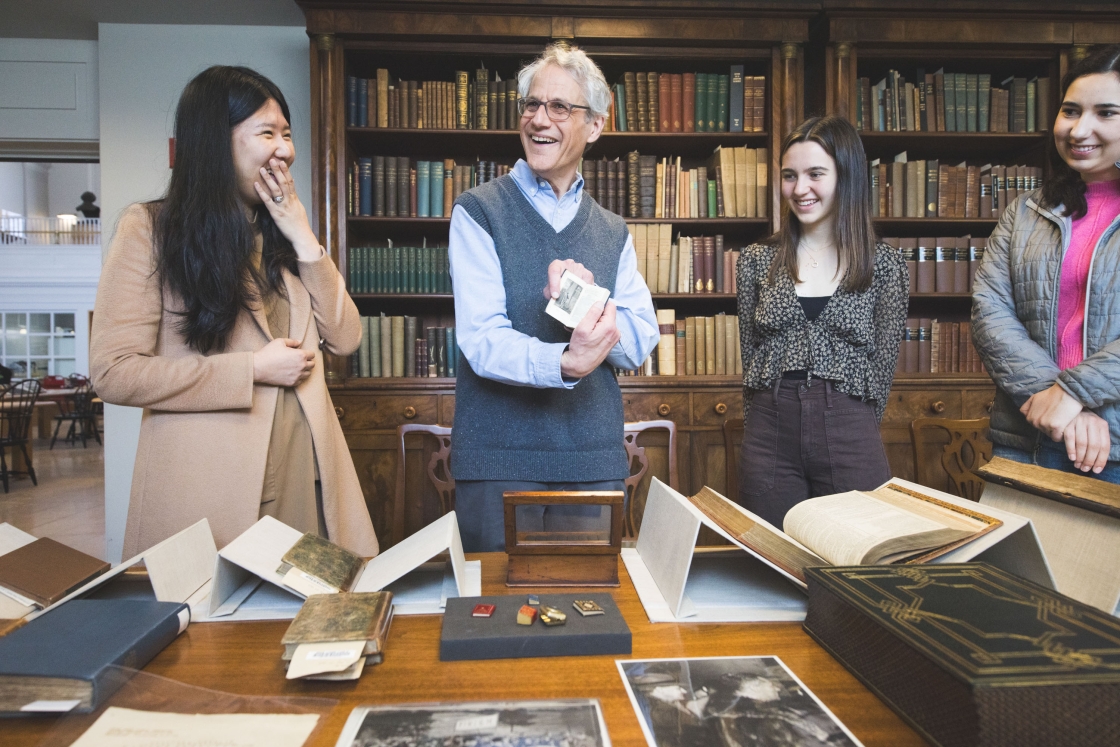Following a two-year review, Dartmouth’s Faculty of Arts and Sciences voted on May 9 to begin the fall term about a week earlier and end it by the Thanksgiving holiday. The new calendar will improve the continuity of the fall term academic experience, as well as increase opportunities available to faculty and students during the winter interim.
The new academic calendar will take effect in summer 2012, with the fall 2012 term beginning September 10 and the final examination period ending November 21, the day before Thanksgiving. The Graduate School of Arts and Sciences and Thayer School of Engineering will also follow this new academic calendar, while the Tuck School of Business and Dartmouth Medical School will continue to follow their own calendars.
Under Dartmouth’s current calendar, the fall term begins the third Wednesday of September (September 21 in 2011) and ends in early December (December 7 in 2011). Following the Thanksgiving holiday, students return to campus for two class days, two pre-examination study days, and then take final examinations before departing again for winter break.
Michael Mastanduno, dean of the Faculty of Arts and Sciences, said, “At the request of the faculty, we have been studying the options for a calendar change since 2009. The faculty’s consensus was that eliminating the need to hold finals after Thanksgiving break will improve the continuity of the fall term academic experience. The calendar change will also mitigate some economic and logistical challenges for students, many of whom were unable to travel home to spend the holidays with their families.”
“We believe this will substantially improve the academic experience of students and faculty, both for teaching and for research.”Consistent with current practice, students who meet the criteria for interim housing may continue to apply to remain on campus during the break.- Associate Professor of Philosophy Samuel Levey
“In addition to addressing the core pedagogical concerns of the faculty, the new academic calendar results in a longer winter break, creating a period when faculty may focus on scholarly activities,” said Provost Carol Folt. “It will also allow for more student opportunities for research, community service projects, travel, and work experience.”
Folt, who also co-chairs Dartmouth’s Budget Committee, added that, “It is important to note that this initiative is driven by academic needs, not cost savings. The calendar change will not necessitate any staff layoffs or furloughs.”
College Registrar Meredith Braz led the extensive calendar review process. “We had a great deal of input from the faculty Committee on Instruction and the Committee of Chairs,” said Braz. “The process has included broad faculty involvement, as well as significant consultation with students and administrators.”
Fall athletic pre-season training and Dartmouth Outing Club First-Year Trips will begin sooner, due to the earlier start for fall term. “Looking ahead, we will continue to utilize working groups to investigate all impacts the calendar change will have on student and faculty services and programming,” Braz said.
Fall term, historically the longest of Dartmouth’s terms, will move from 48 to 47 instructional days, and the interim break between summer and fall terms will be about 10 days shorter. The schedule and duration of the winter, spring, and summer terms will not be affected.
“The great part about the new calendar is that it will prevent the Thanksgiving break from interrupting the continuity of classes and preparation for final papers and exams,” said Gardiner Kreglow ’14, who serves as a student representative to the faculty Committee on Instruction (COI). He noted that some students consulted during the review expressed concern about how the longer winter break will be spent. “But we hope that it will allow more time for career opportunities, standardized exam preparation and graduate school applications, and other meaningful experiences that the shorter winter break did not accommodate.”
The new calendar was formally recommended to the full faculty by the COI, which weighed several alternatives in its deliberations. ”We believe this will substantially improve the academic experience of students and faculty, both for teaching and for research,“ said Associate Professor of Philosophy Samuel Levey, who chairs the COI. ”In our view this was the best option overall and the right step for the College to take.“
To view the 2011–12 calendar, which begins in June 2011, as well as the 2012–2013 academic calendar that reflects the recent faculty vote, visit the Registrar’s website.
[[{”type“:”media“,”view_mode“:”media_large“,”fid“:null,”attributes“:{”class“:”media-image alignleft size-full wp-image-4848“,”typeof“:”foaf:Image“,”style“:”“,”width“:”75“,”height“:”75“,”alt“:”Dartmouth Shield“}}]]Dartmouth College Press ReleaseContact the Office of Public Affairs (603) 646-3661 • office.of.public.affairs@dartmouth.edu

